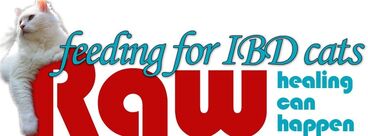Hello! Apologies for this long post but i would really appreciate any help <3 i am a medical student with not a lot of funds but am willing to pay if it means my cat will feel better. I also have insurance but my maximum amount per year is almost reached 
HISTORY prior to problem
- I adopted a 10 yr old cat almost a year ago. She had a history of chronic vomiting about once to twice a month. Also years of untreated ear infections and obesity (not severe). Owner thought this was normal and proceeded to feed her generic pet food as well as deli cheese and meat for snacks (Yup...)
- When I adopted her she was throwing up every other day. I switched her to I/d food (which I still had from my previously deceased cat). She immediately stopped and barely vomited excluding the occasional hair ball for about 6 months.
- I did a yearly blood test at the vet a few weeks after adoption and they noticed high Fpl levels indicative of pancreatitis. They did an Ultrasound and diagnosed her with triaditis (pancreatitis, cholecystitis, enlarged liver, inflamed small bowel)
- I was instructed to give daily ursodiol for gall bladder and cerenia for pancreas/nausea every 3 days. She did great for the previously mentioned 6 months.
- However, I was instructed to switch her to z/d food as vet thinks she had an allergy, given her ear infections and GI symptoms. I did so in December 2019.
CURRENT PROBLEM
Symptoms: Chronic vomiting usually in the morning, since January 2020. Behavior even now is COMPLETELY normal, she is energetic and playful, regular bowel movements and urination, always begging for food and eats it all, cuddly, doesn’t express pain when abdomen is palpated. Vomit is usually orange-brown sometimes clear.
Timeline and Details: In January she began throwing up once a week in the morning, which progressively increased to every day for 3 days after about a month (I was talking to the vet throughout this, but she said I can wait until our prescheduled ultrasound appointment as it did not seem emergent, since her behavior was normal). However I took her earlier once she began throwing up daily. She was given fluids and an Xray. Vet said she was very constipated and gave me a laxative, thinking this may cause her nausea. Didn’t help. They then did the ultrasound as scheduled a week later.
HISTORY prior to problem
- I adopted a 10 yr old cat almost a year ago. She had a history of chronic vomiting about once to twice a month. Also years of untreated ear infections and obesity (not severe). Owner thought this was normal and proceeded to feed her generic pet food as well as deli cheese and meat for snacks (Yup...)
- When I adopted her she was throwing up every other day. I switched her to I/d food (which I still had from my previously deceased cat). She immediately stopped and barely vomited excluding the occasional hair ball for about 6 months.
- I did a yearly blood test at the vet a few weeks after adoption and they noticed high Fpl levels indicative of pancreatitis. They did an Ultrasound and diagnosed her with triaditis (pancreatitis, cholecystitis, enlarged liver, inflamed small bowel)
- I was instructed to give daily ursodiol for gall bladder and cerenia for pancreas/nausea every 3 days. She did great for the previously mentioned 6 months.
- However, I was instructed to switch her to z/d food as vet thinks she had an allergy, given her ear infections and GI symptoms. I did so in December 2019.
CURRENT PROBLEM
Symptoms: Chronic vomiting usually in the morning, since January 2020. Behavior even now is COMPLETELY normal, she is energetic and playful, regular bowel movements and urination, always begging for food and eats it all, cuddly, doesn’t express pain when abdomen is palpated. Vomit is usually orange-brown sometimes clear.
Timeline and Details: In January she began throwing up once a week in the morning, which progressively increased to every day for 3 days after about a month (I was talking to the vet throughout this, but she said I can wait until our prescheduled ultrasound appointment as it did not seem emergent, since her behavior was normal). However I took her earlier once she began throwing up daily. She was given fluids and an Xray. Vet said she was very constipated and gave me a laxative, thinking this may cause her nausea. Didn’t help. They then did the ultrasound as scheduled a week later.
- ultrasound showed slight improvement / no change: liver is still enlarged, muscularis of jejunum (small bowel) is thick. She continues to throw up and vet has no more ideas. I take her to emergency room…they transfer her to internal medicine and they do another ultrasound and GI panel. GI panel is completely normal, vet says GI is functioning properly and she does not have pancreatitis (yay?). Their ultrasound was positive for thick jejunum, same as the previous one.
- doctor thinks this is either IBD or intestinal lymphoma and says next step is endoscopy with biopsy. However, she recommends i try switching her to I/d first since she did well on that…and it could avoid an intense, expensive procedure if successful.
- 5 days into I/d no vomiting at all. Then vomiting for 3 days. I call vet. They say i can try taking her off of ursodiol as this can have vomiting side effect. I stop ursodiol. No vomiting for 72 hours…then vomiting today.
- she eats her I/d very fast so maybe she is too hungry in between meals, bile is building up, and causes her to vomit in the morning…especially because she has no other symptoms. though she was vomiting with z/d in january which she didn't finish off as fast, and was in the bowl throughout the day. However, perhaps she would benefit from an antacid?
- she has IBD/lymphoma, and endoscopy is the way to go (even though it is insanely expensive)
- it can’t be allergies because she was throwing up with z/d, which is processed in a way that prevents allergic reactions. But im not 100% sure on this…perhaps the z/d was bothering her stomach in some way. But then why is she continuing to throw up 2 weeks later on the I/d? Could it have been the ursodiol this whole time? Maybe she is still recovering from it...
- I am worried that even the biopsy will yield nothing and the chronic daily vomiting is not gonna stop...I will greatly appreciate any advice.








 Consider feeding a novel protein food (venison, lamb, kangaroo, etc) to your cat instead.
Consider feeding a novel protein food (venison, lamb, kangaroo, etc) to your cat instead.